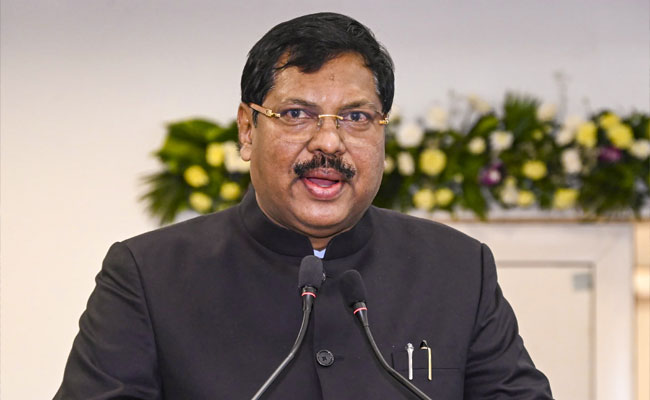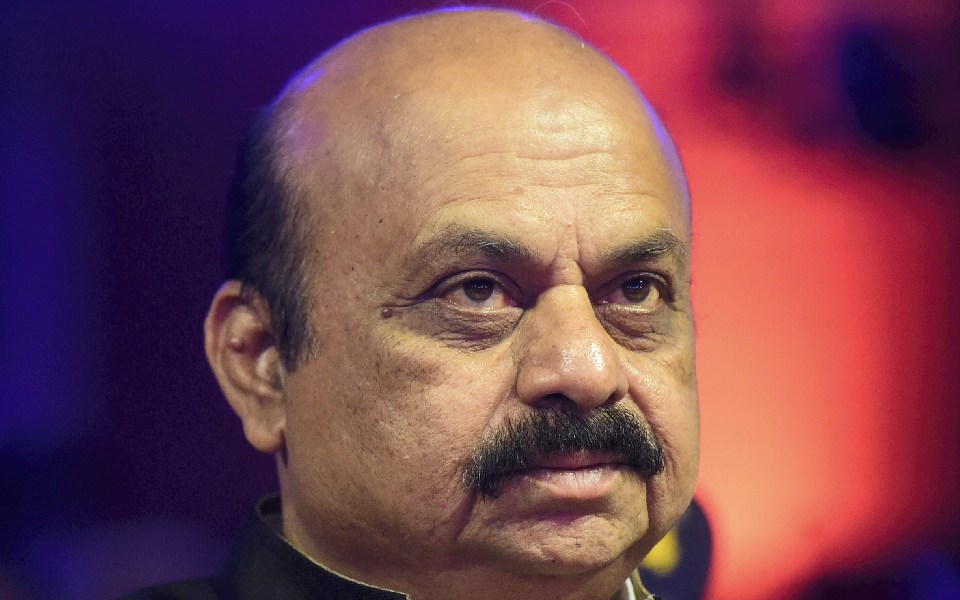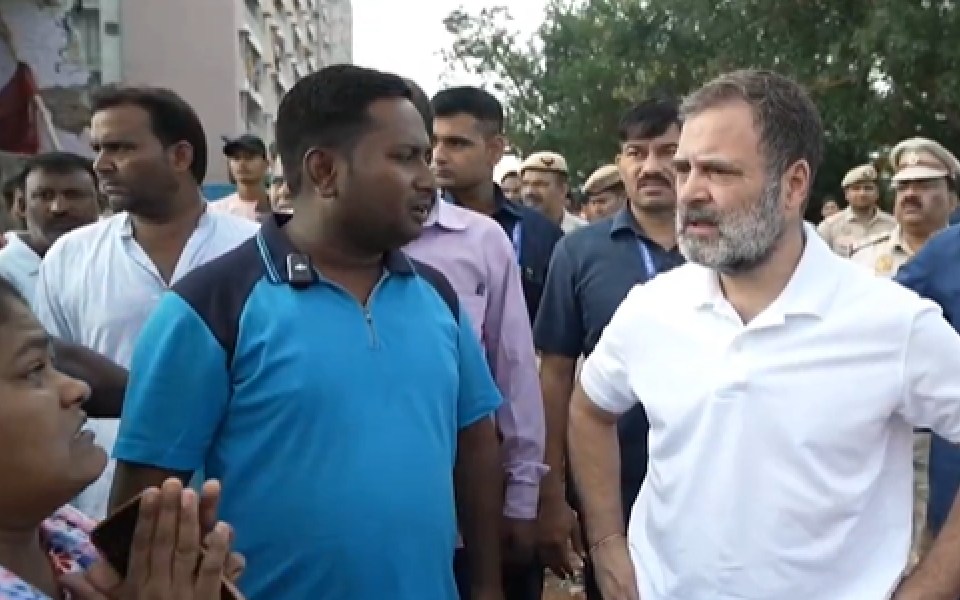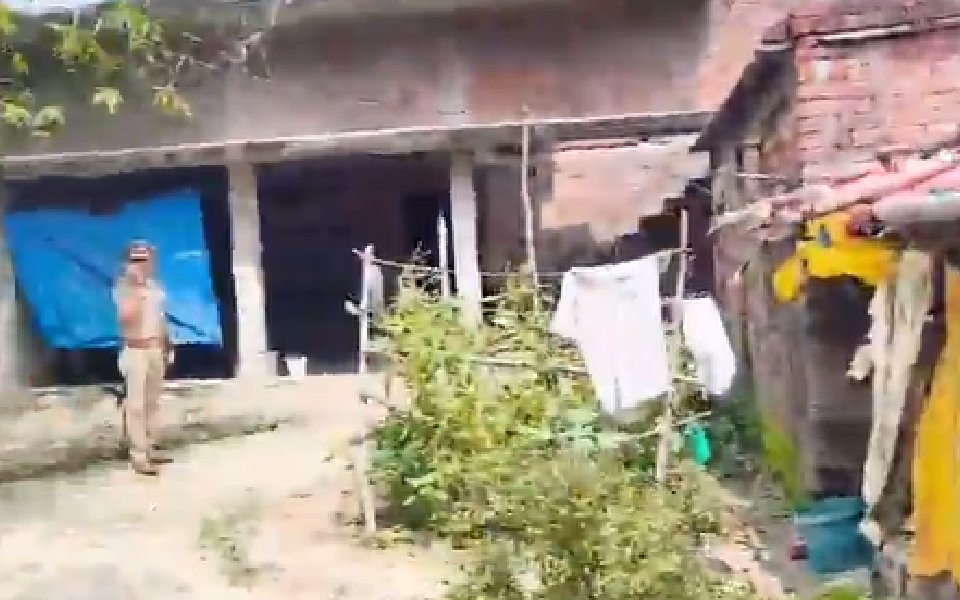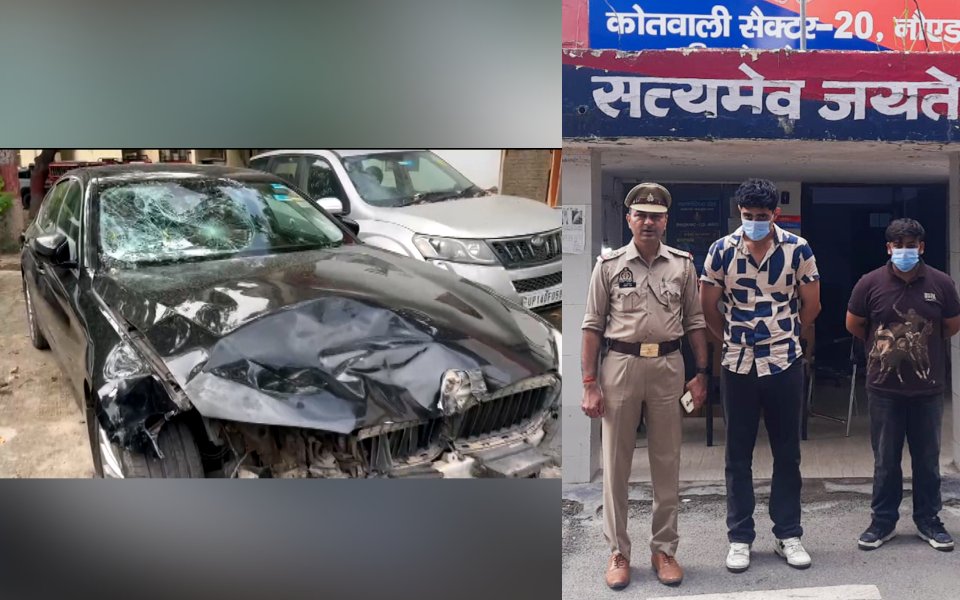New Delhi (PTI): Chief Justice of India B R Gavai has said instances of corruption and misconduct in the judiciary have a negative impact on public confidence, potentially eroding faith in the integrity of the system as a whole.
Speaking at a roundtable conference in the Supreme Court of the United Kingdom on "Maintaining Judicial Legitimacy and Public Confidence", he also spoke about post-retirement jobs taken by judges, and said if a judge takes up another appointment with the government immediately after retirement, or resigns from the bench to contest elections, it raises "significant ethical concerns and invites public scrutiny".
On the issue of corruption, the CJI said whenever these instances of corruption and misconduct have come to light, the Supreme Court has consistently taken immediate and appropriate measures to address the misconduct.
"Furthermore, every system, no matter how robust, is susceptible to issues of professional misconduct. Sadly, there have been instances of corruption and misconduct that have surfaced even within the judiciary. Such occurrences inevitably have a negative impact on public confidence, potentially eroding faith in the integrity of the system as a whole.
"However, the path to rebuilding this trust lies in the swift, decisive, and transparent action taken to address and resolve these issues. In India, when such instances have come to light, the Supreme Court has consistently taken immediate and appropriate measures to address the misconduct," the CJI said.
The CJI's remarks come in the backdrop of Allahabad High Court's Justice Yashwant Varma facing allegations of corruption after the discovery of a large amount of cash from his official residence in Delhi.
CJI Gavai said in every democracy, the judiciary must not only dispense justice, but also be seen as an institution that deserves to hold truth to power and the terms "judicial legitimacy" and "public confidence" are interconnected.
"Legitimacy and public confidence are not secured through coercion of command but through the credibility earned by courts. Any erosion of this confidence risks weakening the judiciary's constitutional role as the ultimate arbiter of rights. Transparency and accountability are democratic virtues," CJI Gavai said.
Dealing with the often debated issue of post-retirement jobs taken by judges, he said the timing and nature of such post-retirement engagements could undermine the public's trust in the judiciary's integrity, as it could create a perception that judicial decisions were influenced by the prospect of future government appointments or political involvement.
"Another point of discussion is post-retirement jobs taken by judges. In India, judges are subject to a fixed retirement age. If a judge takes up another appointment with the government immediately after retirement, or resigns from the bench to contest elections, it raises significant ethical concerns and invites public scrutiny," he said.
The CJI pointed out that a judge contesting an election for a political office can lead to doubts regarding the independence and impartiality of the judiciary, as it may be seen as a conflict of interest or as an attempt to gain favour with the government.
"In light of this, many of my colleagues and I have publicly pledged not to accept any post-retirement roles or positions from the government. This commitment is an effort to preserve the credibility and independence of the judiciary," CJI Gavai said.
He further emphasised that in this digital era, where information flows freely and perceptions are rapidly shaped, the judiciary must rise to the challenge of being accessible, intelligible, and answerable, without compromising its independence.
CJI Gavai highlighted the steps taken by the apex court in enhancing transparency and accessibility and said to bolster public confidence through transparency has been the voluntary disclosure of assets by the judges of the Supreme Court, promoting greater accountability and setting an example of ethical leadership.
"The Supreme Court has itself held that judges, as public functionaries, are accountable to the people. The court maintains a dedicated portal where judges' declarations are made public, demonstrating that judges are willing to subject themselves to a degree of scrutiny, similar to other civil functionaries," he said.
CJI Gavai added that to enhance public transparency, the Supreme Court of India also initiated live-streaming of its Constitution-bench cases.
"However, as with any powerful tool, live streaming must be wielded with care, as fake news or out-of-context court proceedings can negatively shape public perception. Only last week, one of my colleagues in a lighter vein counselled a junior counsel on the art of court craft and soft skills. Instead, his statement was taken out of context and reported in the media as, 'Our ego is very fragile; if you offend it, your case will go out'," the CJI flagged.
CJI Gavai also justified the collegium system for appointment of judges in higher judiciary and pointed out that until 1993, it was the executive that had the final say in the appointment of judges to the Supreme Court and high courts.
"During this period, the executive twice superseded the senior-most judges in appointing the CJI, which went against established tradition," he said, adding the collegium system was meant to reduce executive interference and maintain the judiciary’s autonomy in its appointments.
He said, "There may be criticisms of collegium system, but any solution must not come at the cost of judicial independence. Judges must be free from external control."
Let the Truth be known. If you read VB and like VB, please be a VB Supporter and Help us deliver the Truth to one and all.
Gadag (Karnataka), Jul 27 (PTI): BJP leader and former Karnataka Chief Minister Basavarj Bommai on Sunday condemned Goa Chief Minister Pramod Sawant's statement on the Mahadayi river project, as he also questioned the Congress' moral right to speak on the issue.
He claimed that whatever progress has been made on the Mahadayi issue, it happened under the BJP government.
Addressing the Goa Assembly last week, Sawant claimed that the Centre would not approve the Mahadayi project.
He also said the Goa government would file a contempt petition in the Supreme Court against Karnataka for carrying out activities aimed at diverting Mahadayi river water.
Bommai said, "There is no need to politicise the Mahadayi project issue. We are all united as this is an issue concerning the state. I condemn the statement made by the Chief Minister of Goa. There is no need to play such a big political game over one state's interests. He must act in accordance with the law, and hence I condemn his remarks."
Speaking to reporters here, he questioned the moral standing of Congress leaders in Karnataka on the Mahadayi issue.
"Congress leader Sonia Gandhi herself during the Goa polls said that not a single drop of Mahadayi water would be given to Karnataka. What moral right does Congress have to speak on this issue?" he asked.
Dubbing the Goa CM's statement an "insult to the people of Karnataka", CM Siddaramaiah had earlier hit out at the BJP stating "Why has the Centre not officially communicated its concerns? Is this how federalism works under the BJP? Are we being punished for not surrendering to the BJP?"
Bommai accused the Congress party of building a barrier to prevent Mahadayi water from flowing into the Malaprabha river, thereby obstructing the interlinking canal work initiated during the BJP regime and this was the only "contribution" Congress made to the Mahadayi project.
"Whatever progress has been made on the Mahadayi issue, it happened under the BJP government. The Congress, which constituted the tribunal, did not even provide it an office for four years. It was the BJP government that gave it an office. Though the tribunal gave a verdict, it was not notified. The NDA government under Prime Minister Narendra Modi issued the notification," he said.
It was the central NDA government that prepared the DPR for the Mahadayi project and got it approved. "It was also the BJP government that secured environmental clearance. The only thing the Congress did was to block the interlinking canal works started during the BJP tenure by constructing a barrier to prevent Mahadayi water from reaching the Malaprabha river," he said.
Goa has been opposing Karnataka's Kalasa-Banduri project in the Mahadayi river basin.
The Kalasa-Banduri project by the Karnataka government proposes diverting Mahadayi river water into the Malaprabha river to enhance the drinking water supply in parts of Dharwad, Belagavi, Bagalkote, and Gadag districts.
The Mahadayi river flows through Karnataka and Goa before joining the Arabian Sea. Known as the Mandovi in Goa, it is one of the state's two major rivers.
The diversion of Mahadayi water has long been a point of contention between Karnataka and Goa, with the latter claiming "it would severely impact the state's flora and fauna."
Speaking about the urea shortage in the state, Bommai said the government could have averted the crisis.
"Rainfall began early this year, and fertilizer should have been supplied where needed. Buffer stock should have been maintained, the management has not been proper," he said.
Noting that the state government has now submitted to the Centre for additional urea fertilizer supply, he said, "We (BJP) too will speak with the Union Minister for Agriculture and Fertilizers to get more supply. But more importantly, the fertilizer that is already arriving must be distributed properly by the Agriculture Department and the concerned ministers."

